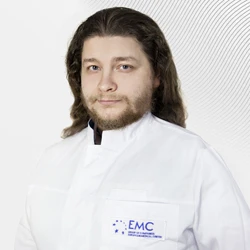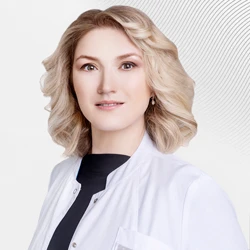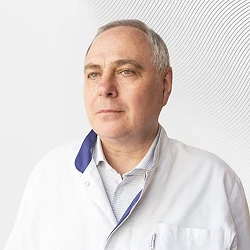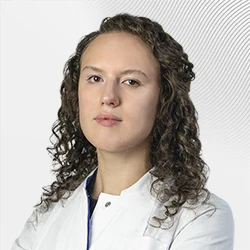Eating disorders
The main danger of eating disorders is the inevitable occurrence of problems in the functioning of various body systems (digestive, endocrine, etc.), which can provoke serious somatic diseases. Depression, anxiety disorders, and substance abuse are also associated with most cases of RPP.
The main eating disorders include:
anorexia nervosa;
bulimia nervosa;
compulsive overeating.
Anorexia nervosa
The symptoms of anorexia nervosa include:
Extreme exhaustion of the body, in which the weight deficit exceeds 15% of the normal or expected body size for a given age;
Weight loss due to the rejection of food that "makes you fat", vomiting, taking laxatives, diuretics and flushing the gastrointestinal tract, excessive exercise, the use of appetite suppressants;
Strong fear of gaining weight;
The patient's misconception of his own figure with a distortion of body image and ideas about his own unattractiveness;
Absence of menstruation or amenorrhea / loss of sexual desire (in men);
Extremely limited nutrition.
Many people with anorexia consider themselves overweight, even if it is below normal. Nutrition and weight control is becoming an obsession. Patients, as a rule, do not consider themselves sick and do not seek help, even if their weight reaches catastrophically low figures and threatens their lives.
Some patients with anorexia nervosa recover well after treatment, and the disease manifests itself only in a single episode. However, in most cases, the disorder becomes chronic and prolonged, especially in the absence of specific therapy.
If left untreated, the following symptoms may appear over time:
Increased bone fragility (osteopenia or osteoporosis);
Brittle hair and nails;
Dryness and yellowness of the skin;
Downy hair growth all over the body;
Anemia, weakness and loss of muscle mass;
Constipation;
Weakness of breathing, pulse, low blood pressure;
Damage to the structures and dysfunction of the heart muscle;
Multi-organ disorders;
Decrease in internal body temperature, causing a constant feeling of cold;
Increased fatigue, lethargy;
Infertility.
Bulimia nervosa
The symptoms of bulimia nervosa include:
Repeated bouts of overeating (rapid absorption of large amounts of food over a limited period of time);
Feeling of loss of control over behavior during an attack;
Vomiting, taking laxatives or diuretics, strict diets or starvation in combination with exhausting physical training;
Obsessive worries about your weight.
Patients with bulimia, as well as with anorexia, are afraid to gain weight and tend to lose weight due to dissatisfaction with their figure. Bulimia is usually carefully hidden from relatives, as it is accompanied by a sense of shame. The overeating-vomiting cycle can be repeated from several times a week to several times a day.
With frequent vomiting, the following disorders occur::
Chronic inflammation and sore throat;
Swelling of the cervical and submandibular salivary glands;
Thinning of tooth enamel, increased tooth sensitivity and an increased risk of caries as a result of exposure to gastric acid;
Gastroenterological problems;
Dehydration of the body;
An imbalance of electrolytes (too low or too high levels of sodium, calcium, potassium and other minerals), which can provoke heart attacks.
Compulsive overeating
It is the most common eating disorder in which there is an increase in appetite and an increase in the amount of food consumed. This disorder does not include signs of bulimia nervosa or anorexia nervosa.
With compulsive overeating, a person loses control over the amount of food consumed. Unlike bulimia, overeating is not accompanied by vomiting, starvation, or excessive exercise.
The most common consequence of compulsive overeating is overweight and obesity. People with excess weight and symptoms of overeating experience feelings of guilt and shame, they experience symptoms of distress, which, in turn, provoke new episodes of overeating.
Advantages of treatment in EMC
The multidisciplinary clinic format allows for comprehensive diagnosis of concomitant somatic diseases and provides the necessary assistance to the patient with the participation of a psychiatrist, clinical psychologist, psychotherapist, nutritionist, endocrinologist, therapist.
A comprehensive treatment program that includes normalization of diet, drug therapy, cognitive behavioral, and family therapy.
Inpatient treatment of severe forms of the disease.
Psychiatric support for patients in remission. Regular meetings with a specialist consolidate the result of treatment and develop resistance to risk factors.
Teaching relatives the correct assessment of the patient's condition, effective communication skills and the necessary psycho-emotional support. This reduces the risk of repeated flare-ups and strengthens family relationships.
Why the EMC
The first and only clinic in Russia, created in the image of the world's leading clinics
EMC is a multidisciplinary center offering patients a high level of medical services and a personalized approach
Worldwide recognition and awards
 Learn more
Learn more
Worldwide recognition and awards
 Certificates and licenses
Certificates and licenses
Make an appointment for a consultation
Specify your contacts and we will contact you to clarify the details
and new products of the EMC





.webp)

.webp)





.webp)





.webp)
